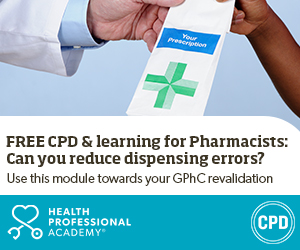Have you ever been in a situation where you’ve needed medical care? You feel confident that since you have health insurance, everything’s taken care of. So, you go to any health care facility, and got the biggest surprise of your life–nothing will be paid by your insurance or health provider, and all expenses are to be shouldered by your pocket.
This scenario isn’t new. If it didn’t happen to everyone, then probably at least a number of those who have health insurance had experienced this once in their lifetime.
In contrary to what many know, there are several services that traditional insurance doesn’t cover. In addition, though some expenses might be covered, the insured still needs to meet their deductible, which is a certain portion of your out-of-pocket maximum. This will ensure that your insurance will pay a portion of the expenses. This is the reason why getting supplemental plans, like Lumico medicare supplement, can be beneficial.
To help you decide whether you should or shouldn’t get supplemental insurance, read this article so you can dig deeper on what supplemental insurance is and how it’ll benefit you and your family.
What Is Supplemental Insurance
Supplemental insurance is an additional coverage plan you can purchase for yourself and other family members. This type of insurance helps you pay for out-of-pocket expenses, deductibles, coinsurance, copayments, or even services that your traditional insurance doesn’t cover.
Many private health insurance companies offer supplemental insurance. Their costs vary depending on the prospective customer’s location, the benefit level of the plan, and the insurance company.

Why Should You Get A Supplemental Insurance
Here are three major benefits that supplemental insurance can provide:
- Provide Lump-Sum Cash For Related Expenses
When you get hospitalized or need to undergo specific medical treatment, hospital bills aren’t the only bills that you need to pay or need to spend money on. You need to consider your medication expenses, too. Most of the time, however, these aren’t covered by your health insurance.
Other expenses that you should consider are the transportation expenses going to and from the hospital. There might be laboratories of follow-up check-ups that the doctors would require to provide a comprehensive diagnosis of your medical condition.
Also, being in the hospital means that you won’t be able to get to work. At times, this also means that you don’t get paid particularly if your work set-up doesn’t allow it or you’ve used up all your sick leave credits.
Despite this, it doesn’t mean that your daily expenses would also stop coming in. Examples are utility bills that are needed to be paid promptly. Most major medical insurances don’t cover these types of expenses. As a result, many people who have health-related concerns often find themselves in deep debt.
This is why many find supplemental insurance important for them. This type of insurance doesn’t only cover expenses for the major health service rendered, but all expenses related to the injury or illness as well. It’s usually done by paying the insured directly in a lump-sum payment. This gives them full control of where and how to pay their illness or injury-related expenses.
- Coverage Without Satisfying Any Deductible Or Out-Of-Pocket Maximums
Unlike many major medical policies where a subscriber must satisfy their maximums before the benefit kicks in, supplemental insurance works differently.
With health insurance, paying for your monthly premium doesn’t mean that everything else is paid once you start needing medical care. It’s because health insurance generally works depending on your policy’s set-up. Most plans require deductibles and out-of-pocket maximums to be paid first before the insurance pays either a portion of the service or all of the approved expenses. This is why a supplemental plan works for most people, especially those who don’t have the capability of paying their medical bills all at once.
- Coverage For Commonly Excluded Critical Illnesses, Accident-Related, And Other Medical Expenses
Though medical health insurances cover most medically necessary services, there are still a lot of limitations and exclusions on its coverage. Sadly, most insured aren’t aware of these exclusions and limitations. As a result, most of them are surprised the moment they receive the hospital bills to be paid.
If you’re proactive to know how your policy works, you can manage the occurrence of medical expenses excluded by your medical plans by getting supplemental insurance. With the right supplemental insurance and benefits plan, you’re ensured that you get coverage for the limited and excluded services of your major medical plan.
Final Word: Is Supplemental Insurance Right For You?
Having traditional medical insurance alone isn’t enough to help you pay all medical bills and other related expenses. Considering the severity of medical and hospitalization expenses, one might consider adding supplemental insurance as a priority on top of everything.
With supplemental insurance, you’re guaranteed coverage for frequently excluded medical expenses with or without paying your deductibles. You can also rely on them for lump sum cash that’s very beneficial in moments of hospitalization.
Remember that health is wealth. Taking care of it, whether through traditional medical insurance or with supplemental insurance, will help you live a happier and healthier life.







